Datasheet
Year, pagecount:2018, 4 page(s)
Language:English
Downloads:3
Uploaded:July 29, 2019
Size:2 MB
Institution:
-
Comments:
Attachment:-
Download in PDF:Please log in!
Comments
No comments yet. You can be the first!Content extract
Source: http://www.doksinet HALF GAME: FAQ Source: http://www.doksinet Half Time: FAQs Why is the half game rule coming in? What do clubs and/or schools have to do? Age grade players tell us that they want to play, and that being part of the team is the most important thing to them about rugby. They don’t want to sit on the bench and only get a few minutes of rugby at the end of a match. Putting in to practice what they have learnt from training sessions into a game situation helps the players, and importantly increases their enjoyment of the game. Ensure that all players within your match day squad get to play at least half the game time available. You can do this using rolling substitutions and/or at set periods within the game. For example, work on quarters and plan substitutions in advance for those points in the game. Both sets of coaches should talk with the referee prior to games, to agree how best they can implement the half-game rule and other game conditions to
ensure it is player centred. Universally accepted child development models show that being active is linked to a child’s enjoyment, self-esteem and confidence, which in turn is linked to their intent to play. By introducing this rule, we aim to increase player enjoyment, aid player development and ultimately retain age grade players in rugby. How do we know this works? The half-game rule is already a policy in New Zealand where positive impacts have been noted, and it has been adopted in Wales in recent years. Scotland will also be introducing the regulation to the game, ahead of the 2018/19 season. We have also conducted a pilot in a number of competitions during the 2017/18 season. The clubs and schools were located in Dorset and Wiltshire, Eastern Counties, Lancashire and Sussex. This pilot was reviewed by the University of Essex, who evaluated player feedback along with the impact on the game. The pilot found that playing half a game ‘often’ means players are six times more
likely to enjoy playing rugby than players who aren’t playing half a game either rarely or sometimes. There was no evidence that suggested this impacted on the results of games or increased injury. The report can be found on www.englandrugbycom/halfgame When is this being introduced? The half game rule is being introduced voluntarily ahead of the 2018/19 season, with the intention for the regulation becoming mandatory for the 2019/20 season. Clubs and schools are encouraged to use the rule during the 2018/19 season, to prepare for introduction of the mandatory introduction. 2 Half Time: FAQ Please see our top 10 tips along with the Age Grade Codes of Practice to help you implement this. Does this apply at all levels of the game and in all competition? In age grade rugby, yes. All levels of the game and competitions at U19 and below from September 2019 will play the half game rule. This includes festivals and 7s competition where players should participate in at least half of the
playing time. Source: http://www.doksinet Half Time: FAQs Does this apply to the 15 Regional Academies? Yes as for the rest of the game, this is regulation from September 2019. Is there a concern that the ‘better’ age grade player leave, if they are being replaced or playing in what they perceive is a weaker team when others are brought on? The England Rugby Regional Academies and RFU and Premiership Rugby Heads of Academies have agreed to implement this in the Under 18 Academy League from September 2018. They understand the importance of it in aiding a player’s development and are right behind the half game rule. Players tell us that being part of a team and playing with their friends is the most important thing to them. Coaches, parents and teammates should set the tone for the half-game rule explaining that it is aimed at ensuring more players want to stay in the group and that you can keep on playing rugby and having fun together. What happens if there is an injury or
risk of injury? All players want to play and maximise their game time, however the pilot showed that enjoyment for all players who took part in half game were higher than those that did not. Evidence shows also that the ‘best players’ are those at risk of being overplayed and therefore fatigued, so good player management using half game can mitigate this. Finally, good coaches will provide these players with a challenge and rewards to support their teammates. This supersedes the rule. If a player is injured they must be removed – their safety and well-being always comes first. What happens if it is unsafe for a player to play? No player should be placed in a position where they are not competent or fully trained to safely participate in a game. For example, we wouldn’t expect a player who has never practiced the tackle, to be asked to do full contact in a match. Half game doesn’t change what the good coach would do anyway. Coaches should consider what is in the best
development needs of the player and how they might condition the game. What about our less able players? Won’t this cost us the game? Players of all abilities are just as important as each other. Being part of the team is what is important to them, so ensuring that they get half a game will directly support what they want from rugby. Research shows that being on the pitch is far more important to age grade players than the result of the match. Playing in matches, making mistakes and learning from them is how all players learn and develop. Players, regardless of ability, tell us they want to play and that playing increases their competence, enjoyment and therefore likelihood to continue. In addition, the University of Essex research study showed that the half game rule did not impact the result of games. 3 Half Time: FAQ What about a player who has not been training – doesn’t this reward them? Half game doesn’t stop a club/school having a policy around training and playing.
But it does give a coach a great tool with which to highlight this further and specifically point out the fairness of a situation. It provides an opportunity to get a less committed trainer further involved. It is important to remember that there are potentially a large number of reasons for this, and we’d recommend a conversation with the parent / player to agree what’s in their best interests and development. What if a game is cut short? This is rare but does sometimes happen due to reasons out of our control. Every effort should be made to avoid this (eg ensuring points differential doesn’t lead to a game being stopped). Coaches should think ahead to ensure that players had opportunity to play ahead of it. For example, making replacements at half time or earlier. Source: http://www.doksinet Half Time: FAQs What happens if an opposition team does not want to utilise the half-game rule? I am a referee, what can I do to support the half-game rule? We recommend that clubs
and schools arrange fixtures and enter competitions with those who share their philosophy of being player centred. As a result, it might be that accepting a fixture against a team with a different philosophy is not in the best interests of the players. Referees, like all others involved in age grade rugby, have a key role in supporting the development of players. If the half game rule is one of the competition rules, please speak to the relevant competition organiser if the other team hasn’t done so. If the club/school have not yet adopted this, you have a chance to influence through your positive actions. What happens if the other team reduces squad numbers? This directly conflicts with what the players tell us is most important to them – being part of the team. By playing reduced numbers to try to negate the rule, it will lead to player dissatisfaction and not aid their development – it may also lead to overplaying of the rest of their team. We encourage parents/guardians of
these players to challenge coaches/teachers who do this. Some competition rules will set minimum numbers and this should be followed up with the competition organiser. Referees should agree with coaches from both teams prior to the game, how they wish to implement the half-game rule – i.e rolling subs, or during set breaks Referees can help by reminding coaches of this as the game progresses. They can also be in a good position to identify where players are not getting half a game. We are not asking referees to enforce this locally by stopping the game or awarding sanctions, but they command a respect that can play an important part in helping players to benefit from the half game rule. I am a competition organiser – what do I need to do? We’d ask that you support by making half game a rule within your competition and sharing with us the impact it has had so we can best evaluate. If you are finding teams which haven’t followed this rule, then we’d recommend this be dealt
with as per any other breach of your competition rules/regulation. Outside of the competition, you are also in a good position to remind clubs/schools that half game will be a regulation from the 2019/20 season and help them to prepare for it. What is the role of parents? Parents play a vital role in driving the benefits of the half game rule for our players. In New Zealand this was a key factor for the success of the implementation with parents working closely with coaches / teachers. We’d strongly encourage dialogue between coaches and parents on this and on the wider development of the player. Where the half game rule is already implemented in clubs and schools, many coaches/teachers set out the expectations a parent/player should have and actively ask the parents to challenge them if they believe they are not sticking to those expectations. 4 Half Time: FAQ
ensure it is player centred. Universally accepted child development models show that being active is linked to a child’s enjoyment, self-esteem and confidence, which in turn is linked to their intent to play. By introducing this rule, we aim to increase player enjoyment, aid player development and ultimately retain age grade players in rugby. How do we know this works? The half-game rule is already a policy in New Zealand where positive impacts have been noted, and it has been adopted in Wales in recent years. Scotland will also be introducing the regulation to the game, ahead of the 2018/19 season. We have also conducted a pilot in a number of competitions during the 2017/18 season. The clubs and schools were located in Dorset and Wiltshire, Eastern Counties, Lancashire and Sussex. This pilot was reviewed by the University of Essex, who evaluated player feedback along with the impact on the game. The pilot found that playing half a game ‘often’ means players are six times more
likely to enjoy playing rugby than players who aren’t playing half a game either rarely or sometimes. There was no evidence that suggested this impacted on the results of games or increased injury. The report can be found on www.englandrugbycom/halfgame When is this being introduced? The half game rule is being introduced voluntarily ahead of the 2018/19 season, with the intention for the regulation becoming mandatory for the 2019/20 season. Clubs and schools are encouraged to use the rule during the 2018/19 season, to prepare for introduction of the mandatory introduction. 2 Half Time: FAQ Please see our top 10 tips along with the Age Grade Codes of Practice to help you implement this. Does this apply at all levels of the game and in all competition? In age grade rugby, yes. All levels of the game and competitions at U19 and below from September 2019 will play the half game rule. This includes festivals and 7s competition where players should participate in at least half of the
playing time. Source: http://www.doksinet Half Time: FAQs Does this apply to the 15 Regional Academies? Yes as for the rest of the game, this is regulation from September 2019. Is there a concern that the ‘better’ age grade player leave, if they are being replaced or playing in what they perceive is a weaker team when others are brought on? The England Rugby Regional Academies and RFU and Premiership Rugby Heads of Academies have agreed to implement this in the Under 18 Academy League from September 2018. They understand the importance of it in aiding a player’s development and are right behind the half game rule. Players tell us that being part of a team and playing with their friends is the most important thing to them. Coaches, parents and teammates should set the tone for the half-game rule explaining that it is aimed at ensuring more players want to stay in the group and that you can keep on playing rugby and having fun together. What happens if there is an injury or
risk of injury? All players want to play and maximise their game time, however the pilot showed that enjoyment for all players who took part in half game were higher than those that did not. Evidence shows also that the ‘best players’ are those at risk of being overplayed and therefore fatigued, so good player management using half game can mitigate this. Finally, good coaches will provide these players with a challenge and rewards to support their teammates. This supersedes the rule. If a player is injured they must be removed – their safety and well-being always comes first. What happens if it is unsafe for a player to play? No player should be placed in a position where they are not competent or fully trained to safely participate in a game. For example, we wouldn’t expect a player who has never practiced the tackle, to be asked to do full contact in a match. Half game doesn’t change what the good coach would do anyway. Coaches should consider what is in the best
development needs of the player and how they might condition the game. What about our less able players? Won’t this cost us the game? Players of all abilities are just as important as each other. Being part of the team is what is important to them, so ensuring that they get half a game will directly support what they want from rugby. Research shows that being on the pitch is far more important to age grade players than the result of the match. Playing in matches, making mistakes and learning from them is how all players learn and develop. Players, regardless of ability, tell us they want to play and that playing increases their competence, enjoyment and therefore likelihood to continue. In addition, the University of Essex research study showed that the half game rule did not impact the result of games. 3 Half Time: FAQ What about a player who has not been training – doesn’t this reward them? Half game doesn’t stop a club/school having a policy around training and playing.
But it does give a coach a great tool with which to highlight this further and specifically point out the fairness of a situation. It provides an opportunity to get a less committed trainer further involved. It is important to remember that there are potentially a large number of reasons for this, and we’d recommend a conversation with the parent / player to agree what’s in their best interests and development. What if a game is cut short? This is rare but does sometimes happen due to reasons out of our control. Every effort should be made to avoid this (eg ensuring points differential doesn’t lead to a game being stopped). Coaches should think ahead to ensure that players had opportunity to play ahead of it. For example, making replacements at half time or earlier. Source: http://www.doksinet Half Time: FAQs What happens if an opposition team does not want to utilise the half-game rule? I am a referee, what can I do to support the half-game rule? We recommend that clubs
and schools arrange fixtures and enter competitions with those who share their philosophy of being player centred. As a result, it might be that accepting a fixture against a team with a different philosophy is not in the best interests of the players. Referees, like all others involved in age grade rugby, have a key role in supporting the development of players. If the half game rule is one of the competition rules, please speak to the relevant competition organiser if the other team hasn’t done so. If the club/school have not yet adopted this, you have a chance to influence through your positive actions. What happens if the other team reduces squad numbers? This directly conflicts with what the players tell us is most important to them – being part of the team. By playing reduced numbers to try to negate the rule, it will lead to player dissatisfaction and not aid their development – it may also lead to overplaying of the rest of their team. We encourage parents/guardians of
these players to challenge coaches/teachers who do this. Some competition rules will set minimum numbers and this should be followed up with the competition organiser. Referees should agree with coaches from both teams prior to the game, how they wish to implement the half-game rule – i.e rolling subs, or during set breaks Referees can help by reminding coaches of this as the game progresses. They can also be in a good position to identify where players are not getting half a game. We are not asking referees to enforce this locally by stopping the game or awarding sanctions, but they command a respect that can play an important part in helping players to benefit from the half game rule. I am a competition organiser – what do I need to do? We’d ask that you support by making half game a rule within your competition and sharing with us the impact it has had so we can best evaluate. If you are finding teams which haven’t followed this rule, then we’d recommend this be dealt
with as per any other breach of your competition rules/regulation. Outside of the competition, you are also in a good position to remind clubs/schools that half game will be a regulation from the 2019/20 season and help them to prepare for it. What is the role of parents? Parents play a vital role in driving the benefits of the half game rule for our players. In New Zealand this was a key factor for the success of the implementation with parents working closely with coaches / teachers. We’d strongly encourage dialogue between coaches and parents on this and on the wider development of the player. Where the half game rule is already implemented in clubs and schools, many coaches/teachers set out the expectations a parent/player should have and actively ask the parents to challenge them if they believe they are not sticking to those expectations. 4 Half Time: FAQ
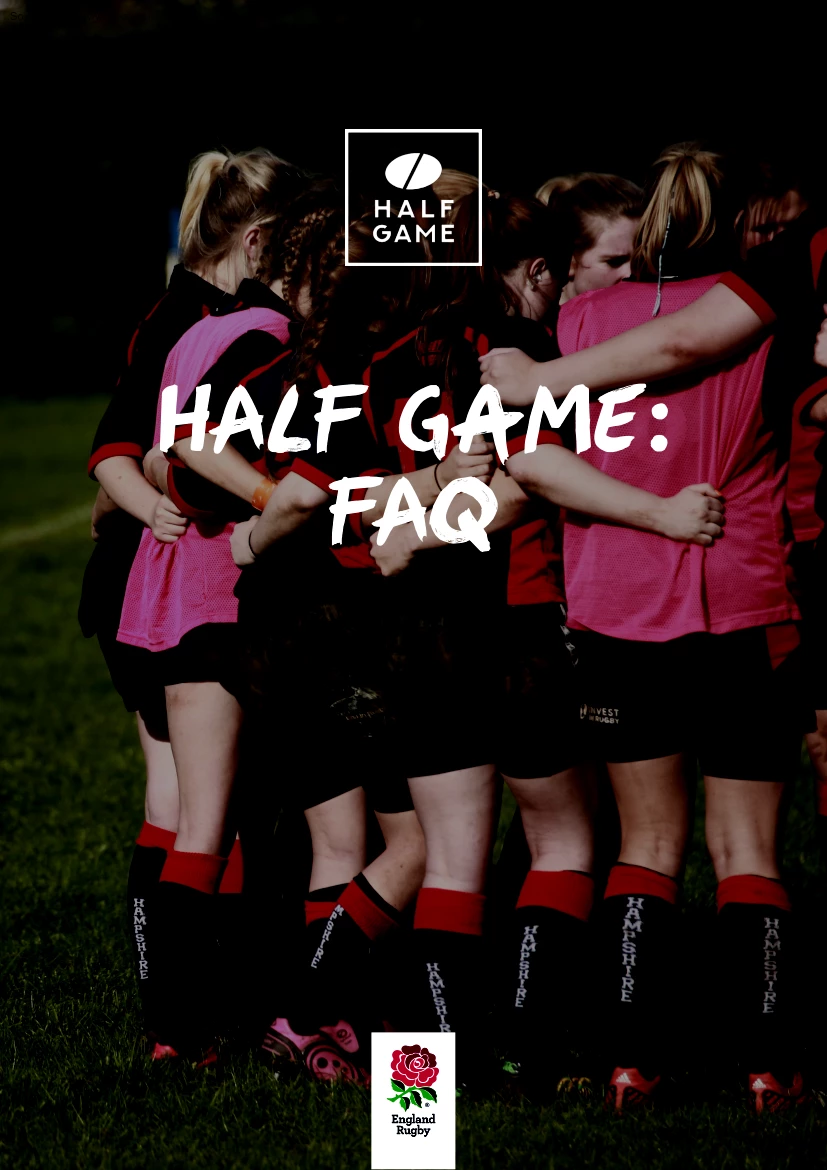
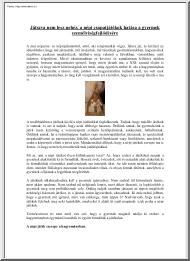
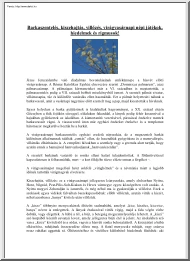
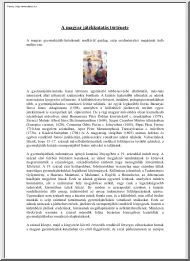
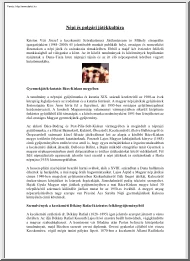
 When reading, most of us just let a story wash over us, getting lost in the world of the book rather than paying attention to the individual elements of the plot or writing. However, in English class, our teachers ask us to look at the mechanics of the writing.
When reading, most of us just let a story wash over us, getting lost in the world of the book rather than paying attention to the individual elements of the plot or writing. However, in English class, our teachers ask us to look at the mechanics of the writing.